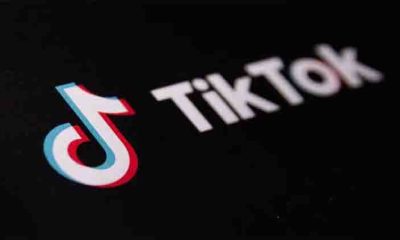Tech
Google to launch fund to support Taiwan’s media outlets
Alphabet Inc.’s (GOOGL.O) Google said on Wednesday it will launch a T$300 million ($9.8 million) fund over the next three years to help boost the Taiwanese media’s continuing operations and digital competitiveness.
Google has come under pressure in some countries to negotiate commercial deals and pay news publishers for their content, though not in Taiwan.
Google said it will pay local publishers through what it calls a “Taiwan News Digital Co-prosperity Fund” to strengthen their digital publishing capability.
The fund will help Taiwan local media “hone digital skills, gain expertise and support the sustainable development of Taiwan’s news industry”, the company said.
“Even while Google faces many challenges in the overall international environment, Taiwan remains a crucial global stronghold,” Tina Lin, managing director of sales and operations at Google Taiwan, told reporters in Taipei.
Google said Taiwan’s media industry has been facing major competitive challenges in adapting to the digital age, pointing out that advertising revenues for traditional media outlets have dropped 70% from 2003 to 2020.
The initiative marks the latest effort by the internet giant to develop mechanisms to support and compensate regional news providers whose content appears on Google, as it faces the prospect that governments may impose regulations to require such mechanisms.
An Australian law giving the government power to compel Google and rival Meta Platforms (META.O) to negotiate content supply deals with media outlets has largely worked, according to an Australian government report in late 2022.

Tech
Apple CEO says looking into possibility of building manufacturing facility in Indonesia
Apple CEO says looking into possibility of building manufacturing facility in Indonesia
Tech
TikTok quizzed by EU on TikTok Lite launch in France, Spain
TikTok quizzed by EU on TikTok Lite launch in France, Spain
Tech
SiTime introduces chip aimed at saving power in AI data centers
SiTime introduces chip aimed at saving power in AI data centers
-

 Fashion3 months ago
Fashion3 months agoGucci opens Milan Fashion Week with De Sarno’s dressy looks for men
-

 Fashion3 months ago
Fashion3 months agoAmi updates bourgeois styles for fall runway show at Paris Fashion Week
-
Fashion3 months ago
Louis Vuitton opens Paris Fashion Week with Pharrell Williams’ styles from American West
-

 Sports2 months ago
Sports2 months agoSon and Bissouma ready for Spurs game with Brighton
-

 Sports2 months ago
Sports2 months agoSinisterra signs long-term deal with Bournemouth
-

 Fashion2 months ago
Fashion2 months agoGiorgio Armani catwalk blooms with florals at Milan Fashion Week
-

 pakistan2 months ago
pakistan2 months agoECP convenes emergency meeting today
-

 World3 months ago
World3 months agoNorth Korea tests underwater nuclear drone, criticises US-led joint drills























